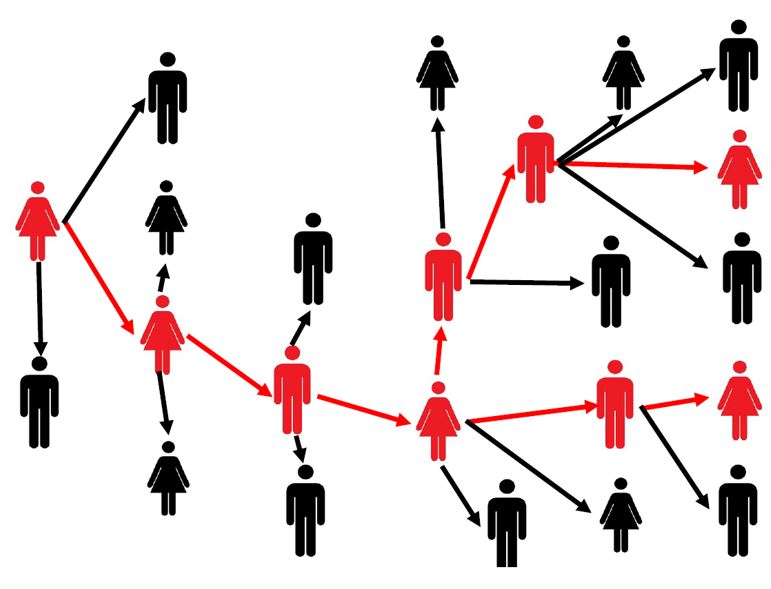
With talk of “Contact Tracing” in relation to managing the COVID-19 spreads, the question of where are all of these needed “Contact Tracers” are going to come from may be actually much simpler than assumed. Judging from some of the stated prerequisites of empathy, understanding of patient confidentiality, problem solving, disciplined phone contact and locating contact information for person, it sounds as though this may be an opportunity for the collections industry to fill some of these 10,000 – 300,000 new job opportunities.
In a May 11th article on InsideARM, CEO Stephanie Eidelman, spelled out a compelling argument as to why collectors and collection agencies could help fill this role. In light of collections moratoriums and the threat of federal legislation to essentially kill all collections activity during the period of the Stafford Act (Federal Nation Emergency), this could be a good fall back job.
Contact Tracing, is a process that involves counseling potentially exposed contacts of an infected person with information and support to prevent them from spreading the disease. In many states and counties, they are employing Librarians to fill this function, but this work pool is limited, especially in our internet connected world. New sources for emploees to fill these roles will surely be needed.
A recent survey by NPR, which included responses from 41 states and Washington, D.C., found that about 7,602 people in total were currently working as contact tracers, and that number is expected surge to about 36,587, just as a start. As states begin to loosen restrictions more aggressively, these numbers could double or triple in a matter of a weeks.
According to CDC Director Robert Redfield, reopening the country will require a “very aggressive” contact-tracing operation. In an April report by the Johns Hopkins Center for Health Security, it was estimated that the public-health sector would require about 100,000 new contact tracers. In the meanwhile, in a letter sent to congress, former public-health officials including Andy Slavitt, Scott Gottlieb and Vivek Murthy reported that they estimated the needed contact-tracing workforce to be scaled up by 180,000 until a vaccine became available, while former CDC director Tom Frieden told STAT News that the country would needed “an army of 300,000” contact tracers
According to John Welch, the director of partnerships & operations for Massachusetts’ COVID-19 response at Partners In Health, when interviewed by the NPR on “What it Takes to be a Contact Tracer” about their contact tracing program and training, he made this statement;
It’s going well. It is exactly as you described it, a ramp-up at this stage, a lot of quick hiring and, you know, in-depth training and making sure we have the right people who have the right skills but then most importantly people who have the patience and the empathy to listen. They’re reaching out to people who are in crisis and some people who are in acute crisis sort of superimposed on a chronic crisis of maybe poverty or marginalization. And those individuals need extra time and not only need it – they deserve it. So these contact tracers are balancing the need for understanding how to do the work while also just being a gentle ear.
In an uncertain future, with an uncertain industry, this could be an opportunity for collectors to take their skills into a new realm that can help our nation manage this pandemic while we anxiously await a vaccine.
To Quote InsideARM, CEO Stephanie Eidelman, “If ever there were an application that is uniquely matched to an industry, this is it. Contact tracing and debt collection require the exact same skills. And many in the industry stand available to be deployed right now. This just requires some pivoting. Reach out to your local health department — they are the ones coordinating the effort.“
With unemployment levels swelling to historic levels and impending record delinquency, I doubt many collectors will be looking for work anytime soon. And while we all hope and pray that this crisis passes soon and that contact tracers eventually are no longer needed, this may be a great way for collectors to apply themselves in a new field while serving the public.










